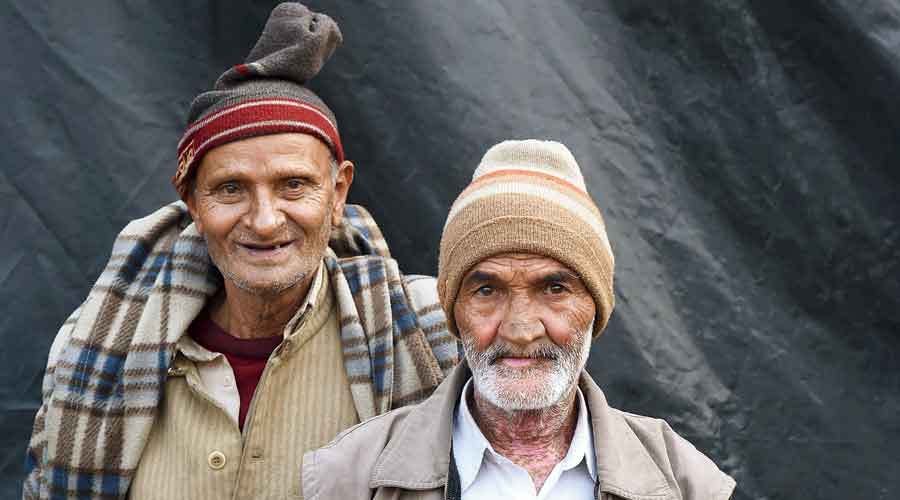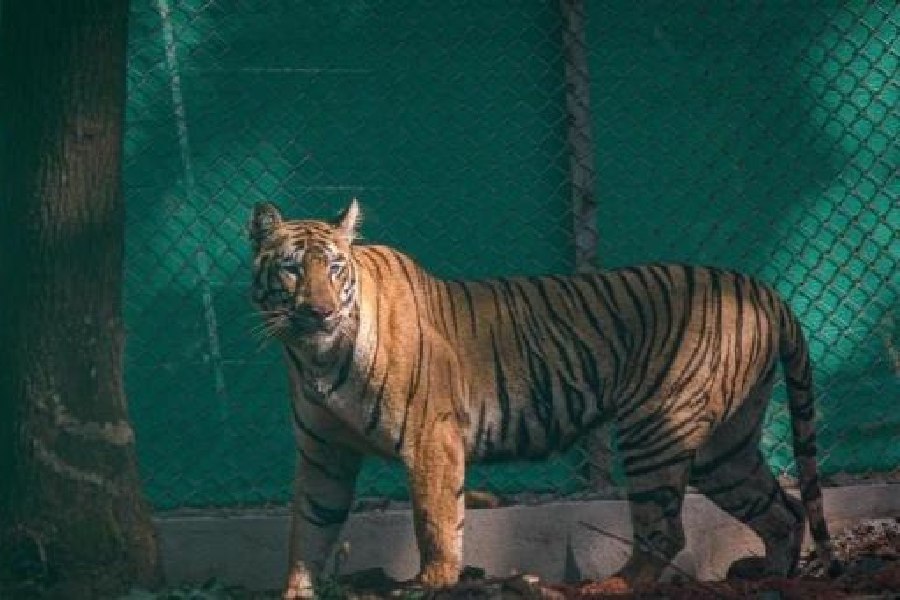The rain has swept away the dust but not the farmers’ resolve.
Retired army captain Dhop Singh, a 75-year-old veteran of the 1971 war, sat in a chair inside a tent on Tuesday afternoon amid the bitter cold. Gazing at the road outside, pockmarked with rainwater-filled potholes, he said the path before the agitating farmers was clearer than before.
“Farmers have a strong association with rain and cold. When it rained, it was a happy feeling. Rain is good for crops. At least there was no hailstorm,” he said.
He said the rain — which fell intermittently from Saturday morning till Tuesday evening — had had “little impact inside the tents” although he admitted spending the last three nights sitting in a chair since the floor had got damp.
It’s no surprise that Dhop loves the rain. Since retiring from the army in 1995, he has been trying to squeeze an yield out of his 42 acres of arid farmland in the Haryana village of Baganwala.
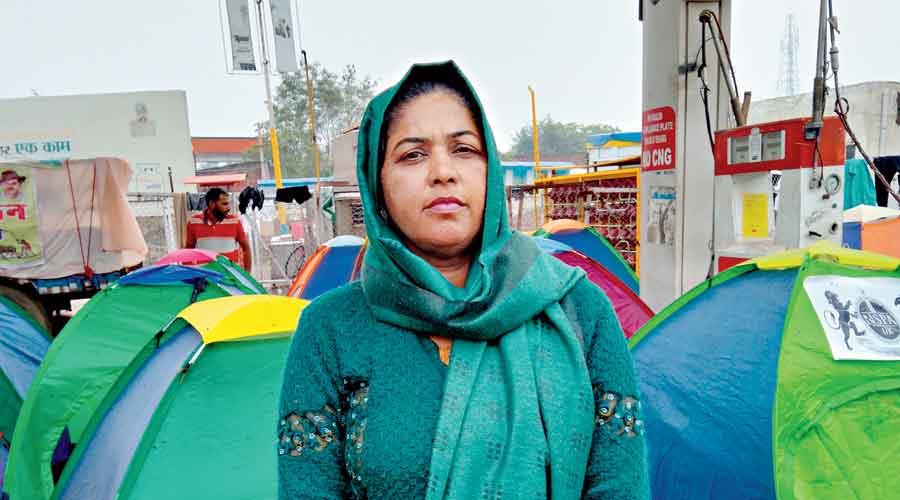
Daljeet Kaur
Poor rainfall and lack of irrigation have forced him to cultivate crops like chana (gram), moong dal (green gram), bajra (pearl millet) and mustard, which he grows during the wet season.
“Now the government is ignoring our demand to repeal the three new farm laws. The agitation will become stronger now, with more farmers joining us. We are ready for a longer fight,” he said.
“Even if (Prime Minister Narendra) Modi brings in cannons to block our way, we shall march ahead,” declared the old soldier, who said he had been posted in forward areas during the 1971 war.
Dhop, who owns a buffalo that cost him Rs 1 lakh, scoffed at the government’s claim that the Farmers’ Produce Trade and Commerce (Promotion and Facilitation) Act would benefit farmers by allowing them to sell outside the government mandis (wholesale markets). “How much money will I get if I sell my buffalo in Gujarat? Will Modi ensure that I get more than Rs 1 lakh for my buffalo if I sell it in Gujarat?” he said.
Pavan Hindustani, a farmer in his late 40s from Dhop’s village, owns 10 acres of farmland. He said the main threat was the Farmers’ (Empowerment and Protection) Agreement on Prices Assurance and Farm Services Act, which facilitates contract farming.
“All the conditions in the law are loaded in favour of corporate groups that enter into agreements for contract farming. The farmers will become tenants on their own land. These laws will destroy them,” Hindustani said, sitting inside his polythene-sheet-covered tent and smoking a hookah.
He said Modi lacked the knowledge that family men acquired through experience.
“One thing common among family men is flexibility. Modi has not got it. But the farmers won’t give up; this is a struggle for our lives and livelihood,” Hindustani said.
Daljeet Kaur, a fiftyish woman who has a transport business in Amritsar, has been protesting in solidarity with the farmers at the Tikri border between Haryana and Delhi since November 26. She was on a relay hunger strike on Tuesday — every day, 11 farmers sit in a relay hunger strike here.
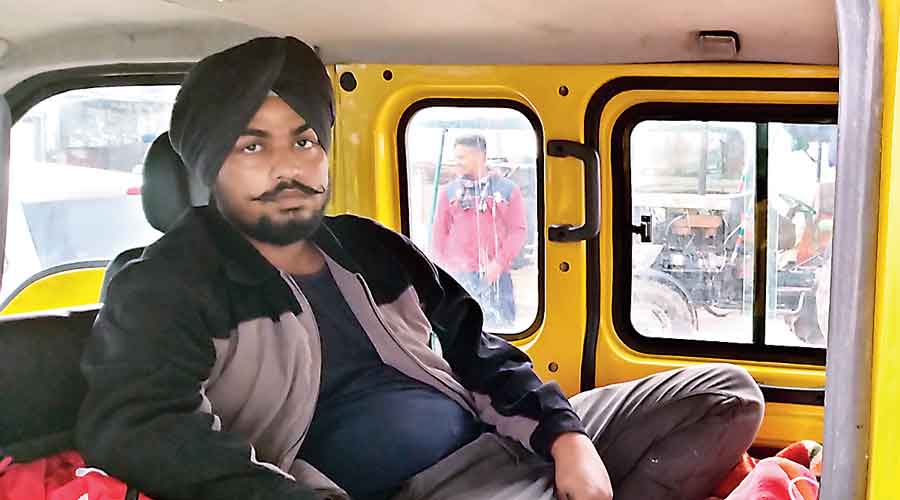
Onkar Singh Randhawa
Kaur said: “The corporate groups have realised that people can live without almost anything but food. They want to focus their business on food now. The government is taking their side.”
Women’s participation here seemed higher than the about 10 per cent witnessed at the Singhu border. Kaur said half the agitators at the Tikri border were women from Punjab and Haryana.
Kaur used her rental service vehicles to bring groups of farmers free of charge to the protest site. Onkar Singh Randhawa, 30, sat inside one such vehicle, a school minibus, where he had slept the last three nights.
“Yes the rain caused hardship. It’s not pleasant spending nights inside a bus. But we have been forced to start this agitation, and now there’s no going back,” the farmer from Mehta village near Amritsar said.
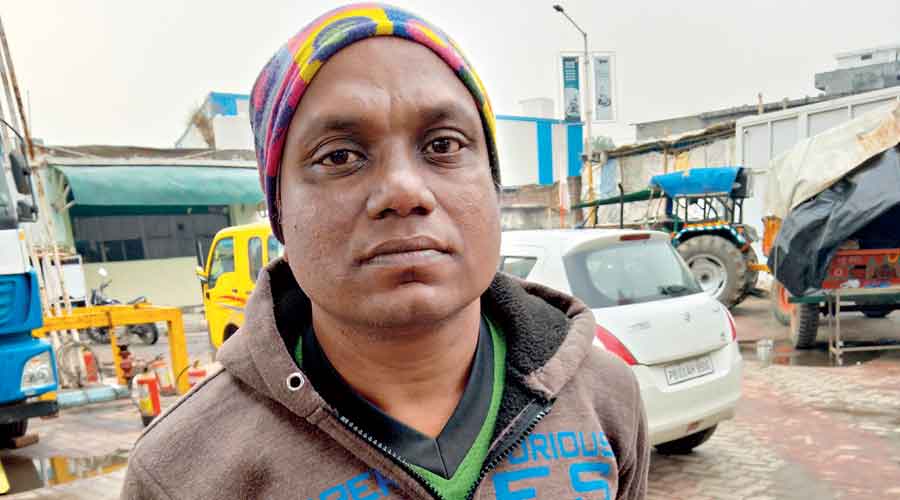
Chaitanya Manjrekar
Twenty-something Virendar Singh and Nirmal Singh, small farmers from Rure Ke Khurd village in Punjab’s Barnala district, have been sleeping inside small climbers’ tents. When it rained, they covered their mattress with extra layers of polythene sheet.
“The agitation is going on with the blessings of Guru Nanak. The Guru’s langar is going on. The agitation will not stop,” Virendar said.
Chaitanya Manjrekar, a mango grower from Pune, censured the government for damaging public property like roads to stop the farmers from entering Delhi.
“The government is saying the agitating farmers are a small group of people. If so, why are the police digging up roads and hurling tear gas?” the 50-year-old said.
“More farmers from Maharashtra are on their way to join the agitation here. The police are damaging roads, which are public property.”

